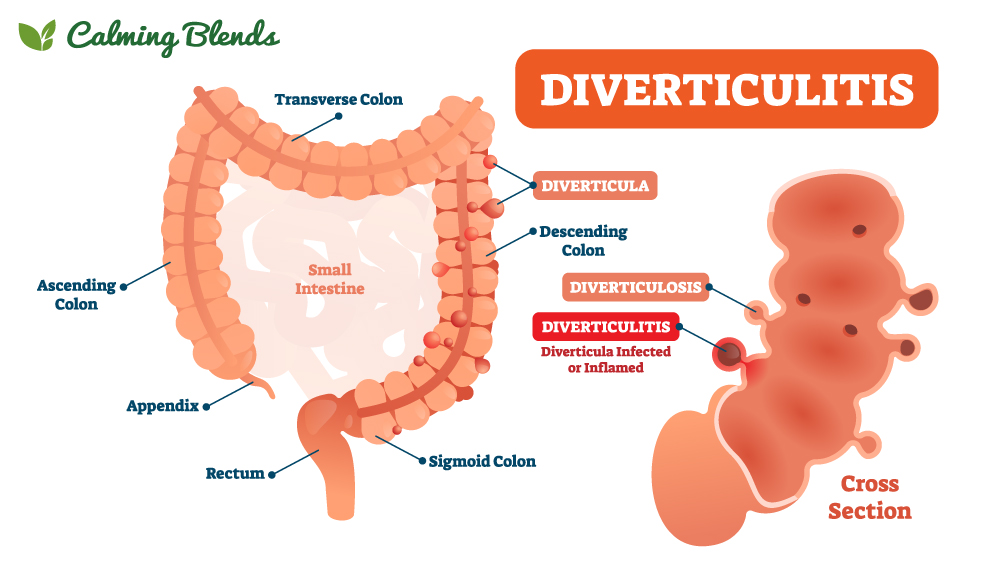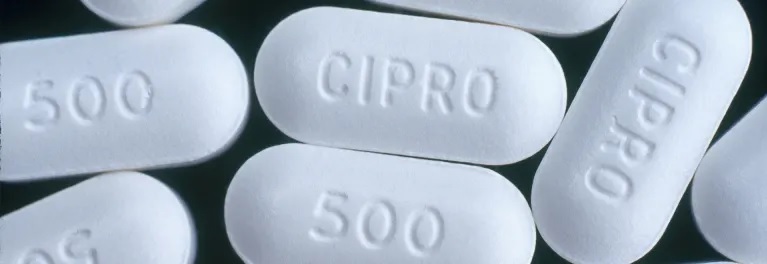
Treat Diverticulitis Naturally
Do you suffer from diverticulitis? If you do, you are not alone. Diverticulitis is a painful condition that has unfortunately become more common in the United States thanks to our increasingly unhealthy lifestyle. As we’ve moved away from home-cooked whole foods and have been eating more processed foods, often full of toxic chemicals, various diseases including diverticulitis have soared.
According to Dr. Adil E. Bharucha of the Mayo Clinic in Rochester, Minnesota, incidents of diverticulitis have increased by 50% since 2000. According to the American Society for Gastrointestinal Endoscopy, half of Americans over 60 have at least some diverticula in their colon. (source: https://www.reuters.com/article/us-health-diverticulitis-trend/diverticulitis-on-the-rise-in-u-s-since-2000-idUSKCN0S72T520151013) While most cases are minor and can be treated with a course of antibiotics, some are more serious and can lead to death.
At this point, you may be asking – what is diverticulitis? How can you prevent and treat it? Are there natural remedies available?
What is Diverticulitis
Diverticulitis is a disease of the digestive tract. As people age, sometimes weak spots develop in their intestinal wall. Over time, pressure may cause sections to bulge outwards, causing small pockets called diverticula. These are most common in the large intestine, or colon. They may exist without any symptoms of infection or inflammation at first.

However, over time, as food particles or feces become trapped in these pouches, bacterial growth leads to inflammation and infection. This can cause tearing of the intestinal lining and other serious problems including:
- Nausea
- Fever
- Severe abdominal pain
- Bloody bowel movements
- Abscesses
- Fistula
The sooner these issues are addressed the better. Left untreated, a mild case of diverticulitis can become full blown sepsis as the underlying infection spreads. For example, it can enter the abdominal cavity and cause peritonitis. Or it can cause a fistula, or abnormal connection between two organs. This could infect organs like the bladder. There can also be blockages of the bowel. All of these conditions can be very painful.
As you can see, diverticulitis is a serious condition you want to avoid. Prevention is the best goal. However, if you have already been diagnosed with diverticulitis, then you will want to manage it in a way that maximizes your quality of life.
Medical Treatment
Unfortunately, the American medical system focuses only on cures, not prevention. Few patients are taught about lifestyle changes to prevent or alleviate disease, and by the time someone with diverticulitis visits a doctor, infection may have already set in. Therefore, their physician will prescribe antibiotics. Cipro is one of the most common. Unfortunately, it has side effects. Its active ingredient is ciprogloxacin, which can cause chronic illness and disability.

Used once in an emergency, it may not cause any problems. However, patients who take it multiple times will have a greater probability of encountering adverse reactions. Unfortunately, doctors rarely discuss this with patients, and they seldom explain that, while antibiotics will treat your symptoms, they will not address the underlying cause of your disease.
In fact, antibiotics like Cipro may make your condition worse because in addition to killing the bacteria causing your infection, they will also kill the “good” bacteria in your gut. These beneficial bacteria strengthen your immune system and help regulate important digestive processes.
Because of this, if you are prescribed antibiotics for diverticulitis, it’s important to take a probiotic supplement once you are done with treatment so that you can renew the gut flora killed off by the drugs. Additionally, you should make lifestyle changes that will heal your body and prevent further outbreaks.
Fixing the underlying problem is essential. If you just treat the symptoms without smoothing and strengthening your intestinal wall, you leave yourself open to more episodes as the diverticula repeatedly get infected. This will lead to a vicious cycle. Each time you have a flare-up, you will be prescribed antibiotics which will damage your gut flora and make it harder for your body to fight diverticulitis. Not only that, your body may develop a resistance to the antibiotics, making them less effective, or start to be affected by the drugs’ side effects.
Obviously, antibiotics are not a long-term solution. A far better way to deal with diverticulitis is to make sustainable changes in diet and lifestyle.
How to Prevent Diverticulitis
The best way to prevent diverticulitis is thought to be a fiber rich diet. It is believed that constipation caused by low-fiber diets can increase pressure on the intestinal wall during bowel movements since there isn’t enough fiber to soften stools. This causes weak spots in the colon’s lining that can lead to diverticula. Once diverticula form, it’s only a matter of time before they become inflamed and infected with bacteria.
Other risk factors for diverticulitis include being obese, which increases the chances that the intestines may become inflamed. Certain medications are also a factor. Regular use of drugs such as ibuprofen, steroids and opiates can increase the risk.
Therefore, the best way to prevent this disease is to make sure to get at least 30 grams of fiber in your diet. This should come from a variety of sources and you should try to get both soluble and insoluble fiber. Fruits, vegetables, whole grains, beans and nuts are all great ways to add fiber to your diet. While eating whole foods is the healthiest way to improve your fiber intake, if you are finding it difficult to eat enough fiber rich foods to get to 30 grams, you can supplement with psyllium husk powder. Remember to avoid processed foods which contain toxins. Emphasize organic whole foods instead.
While many health practitioners recommend a mostly raw diet, you may not find that a realistic option; however, try to eat as much raw food as possible. Raw foods are easier to digest since they often have enzymes that help your body’s own digestive enzymes.
Avoid sugar as much as possible, even natural sugar. Many pathogens thrive on sugar. Also avoid alcohol and tobacco and limit caffeine.
When possible, treat sickness with natural herbs that don’t have the harsh side effects of pharmaceuticals. If you are forced to take an antibiotic, always follow up with probiotics.
You should also make sure to add moderate exercise to your daily routine, drink lots of water and get enough sleep. Hopefully you can incorporate good habits to prevent diverticulitis. If you have already been diagnosed, these lifestyle changes can help mitigate further episodes.
How to Treat Diverticulitis with Diet
However, what do you do when you are currently suffering from a diverticulitis flare-up? Since one of the causes of the disease is a low fiber diet, you might think you should immediately start eating lots of fiber, right? Not so fast.
While it is important to eat foods that provide both soluble and insoluble fiber, you don’t want to do it while you are in the middle of a diverticulitis flare up. A clear liquid diet for Diverticulitis is advised when this happens to give your digestive system a rest. Freshly squeezed juice, broth, water and herbal teas are all good options during this period. Some people can also tolerate black coffee and tea.
Once your symptoms subside, you can start gradually reintroducing low fiber healthy foods such as yogurt, cooked soft vegetables, potatoes, low fiber cereals and moderate amounts of animal protein. Over time, continue to introduce foods that are higher in fiber until you are once again on a healthy diet that includes optimal amounts of fiber.
Natural Remedies for Diverticulitis
In addition to lifestyle changes, there are many natural, herbal remedies you can use to heal your digestive tract and prevent further damage.
By providing nutritional elements that may be lacking your diet, these can speed up the healing process. Liquid tinctures are the best form to take to maximize absorption and provide the fastest relief. These typically come with an alcohol base which will have a shelf life of up to 5 years; however, you can also use tinctures with a glycerin base. These will generally last about 2 years. The typical dosage is small, typically 10-15 drops 2-3 times a day; therefore it’s an inexpensive option.
In addition to tinctures, some remedies may come in pill or powder form, or as a liquid supplement. Here is a list of some of these natural healing substances.
Calming Blends Tea
The Calming Blends tea is an all organic herbal tea which has helped thousands of people obtain relief from the painful symptoms of Diverticulitis and Diverticulosis. The ingredients of this tea can help calm muscle spasms in the stomach and also provide anti-inflammatory properties which helps reduce the symptoms associated with an inflamed digestive tract. Moreover this tea soothes and coats irritated membranes in the esophagus, stomach, and intestines.
Aloe Vera Juice
When used regularly, Aloe Vera works powerfully to cure digestive disorders including diverticulitis. Most people report results in 3-30 days, depending on the severity of their condition. It can also be used as a base for tinctures to counteract any unpleasant or strong taste. If desired, any non-citric juice can also be added for flavor.
Barley Grass
One of the first grains cultivated, barley is a powerhouse of nutrition. It can help with detoxification, internal cleansing and tissue repair as well as providing nearly over 30 vitamins and minerals necessary to human health. Because of its natural detoxification properties, it’s highly recommended for cases of heavy metal poisoning as it attaches to metals such as lead, mercury and aluminum and carries them from the body. Additionally, can help repair inflammation and restore damaged tissue in the digestive tract.
It can treat inflammation and soothe digestive distress and also strengthen the stomach’s walls. As a digestive helper, it can help relieve dyspepsia, heartburn, flatulence, nausea, gastritis, both peptic and duodenal ulcers and to improve appetite. It also helps to relieve constipation. Since it can improve colon health and facilitate daily regularity, it may also help prevent and treat diverticulitis.
Barley grass comes in both powder and pill form. Simply take the manufacturer’s recommended dosage.
Kelp
Rich in nutrients, kelp and other seaweeds contain naturally occurring iodine. Taken in liquid form, Kelp strengthens your immune system. It can help remove toxins including radioactive isotopes and heavy metals from your body. Herbalists claim that sodium alginate, Kelp’s active ingredient, binds these in the gastrointestinal tract.
Kelp also promotes thyroid, adrenal and pituitary health and soothes troubled digestive systems. It will aid in treating constipation and gastric bloating.
As a source of over 70 trace elements and many key vitamins and minerals, Kelp acts as an overall tonic. Not only will it help you more easily discharge waste from your body, it will also help balance your pH levels, improve overall digesting and kidney function and help purify your blood.
Papaya Leaf Extract
As people get older, they often have trouble producing enough digestive enzymes. Papaya leaf extract can help because it contains papain. This is an enzyme that helps your body break down both proteins and carbohydrates. It also fights constipation, and contains minerals, B vitamins and vitamin C.
Grapefruit seed extract
This is a great source of vitamin C, which helps strengthen the immune system and helps rid the body of toxins as well as neutralizing free-radicals. It also has anti-microbial properties so it helps fight bacteria, fungi, viruses and parasites in the body. Unlike antibiotics, though, it will not harm your body’s “good” bacteria. Since it is alkalizing, grapefruit seed extract will also help balance your internal pH. While it may not directly fight diverticulitis, by helping correct the balance of your intestinal flora, it gently strengthens your gut so your body can heal.
Marjoram leaf
Related to oregano, marjoram is an herbal aromatic. It’s good for your digestion and eases a sour stomach and relieves stomach pains. It shares the anti-fungal and anti-inflammatory properties of oregano but it’s more relaxing, so it’s better for soothing your nerves and reducing tension.
Wild Yams
High in plant hormones, wild yams can be used to balance hormones. Though to be an antispasmodic, it is used to relieve abdominal cramps and irritable bowel syndrome (IBS) as well as ovarian and uterine pain and other types of cramps. It’s been used to relieve gas and also colic, and is beneficial for digestive problems. It also increases bile flow. This supports your live and aids with digestion.
Licorice
Licorice supports digestion and gastrointestinal health. It can coat the stomach’s lining with mucus and soothe the mucous membranes that protect your digestive tract. It also has antibacterial properties so it aids in treating intestinal infections. It’s traditionally been used as a mild laxative and colon cleanse. It mildly removes toxins and wastes from your body and contains many essential vitamins and minerals.
Marigold
Also known as calendula flower, it’s been used in tincture form for hundreds of years. Taken internally, it promotes the healing of the digestive tract. It also stimulates the lymphatic system, which is essential to removing toxins from the body. It aids in digestion, particularly for fatty foods. It’s a good remedy for colitis, indigestion, heartburn, stomach cramps and diarrhea. Calendula inhibits the formation of bacteria that cause ulcers and gastritis, thus helping to protect your stomach and intestinal lining.
Cramp bark
A Native American remedy, cramp bark is mildly sedative and helps people suffering painful contractions due to diverticulitis, gastritis, indigestion, or IBS.
Chamomile
Chamomile is used to soothe the digestive system and helps tone intestinal walls, making it a good choice to treat diverticulitis. It also has anti-spasmodic, anti-inflammatory and anti-microbial properties. It is also good against parasites.
Caraway seed
An aromatic herb, caraway is not just good for cooking. It also works as a “house cleaner” for the body. Full of proteins, oils and vitamins and minerals, it can be used to treat a variety of digestive ailments including constipation, colic, flatulence, indigestion, heartburn, cramps and IBS. It can speed up digestive processes and stimulate the appetite. It also aids digestion and can protect your digestive system from the infections associated with ulcers and IBS. The fiber in caraway seeds also binds toxins in food and protects the colon from cancerous cells. Herbalists think it’s one of the best supplements for strengthening the digestive tract. Used in conjunction with fennel and peppermint, it is even more effective.
Cat’s Claw
Since its discovery in the Peruvian rainforest, Cat’s claw has gained renown as an immune stimulant. It has antiviral and anti-inflammatory properties as well as being high in antioxidants. Considered a “life giving” tonic, it has a wide spectrum of therapeutic applications but is particularly good for supporting the digestive system. It helps clean the digestive tract, balances intestinal flora and strengthens the immune system.
It is useful for treating infections and a plethora of intestinal disorders, including diverticulitis. It can destroy Helicobacter pylori, a bacteria linked gastritis and peptic ulcers. Because it helps to replenish friendly gut bacteria, it helps with most bowel disease including serious conditions like dysentery.
Its discovery comes at an opportune time, given the emergence of resistant strains of bacteria thanks to the overuse of antibiotics and the increasing occurrence of cancer due to a more toxic environment.
Slippery Elm bark
Slippery elm bark reduces inflammation in the intestinal tract. One of its oldest uses has been as a tonic for the digestive tract; its high mucilage content soothes stomach inflammations and neutralizes excess stomach acid, making it a great remedy for the digestive system. It is considered beneficial for Crohn’s disease, diverticulitis, ulcerative colitis and irritable bowel syndrome. It has also been used to ease constipation as well as chronic diarrhea. Some practitioners prescribe it after severe vomiting to soothe soreness. Herbalists have used it as a remedy for ulcers and gastritis.
Conclusion
We live in an increasingly toxic world. All too often, when we get sick, we are prescribed a pill that may have adverse side effects and which treats symptoms without addressing underlying causes. It is time to pay less attention to the pharma-industrial complex and explore herbal remedies that provide gentle, holistic care and that help treat underlying causes as well as symptoms.
Particularly with diseases like diverticulitis, which can become progressively hard to treat and can severely impact your quality of life, it is vital that you take responsibility for self-care. As always, you should discuss these herbal remedies with your physician and work together to come up with a sustainable plan that will restore vitality and wholeness to your body.
